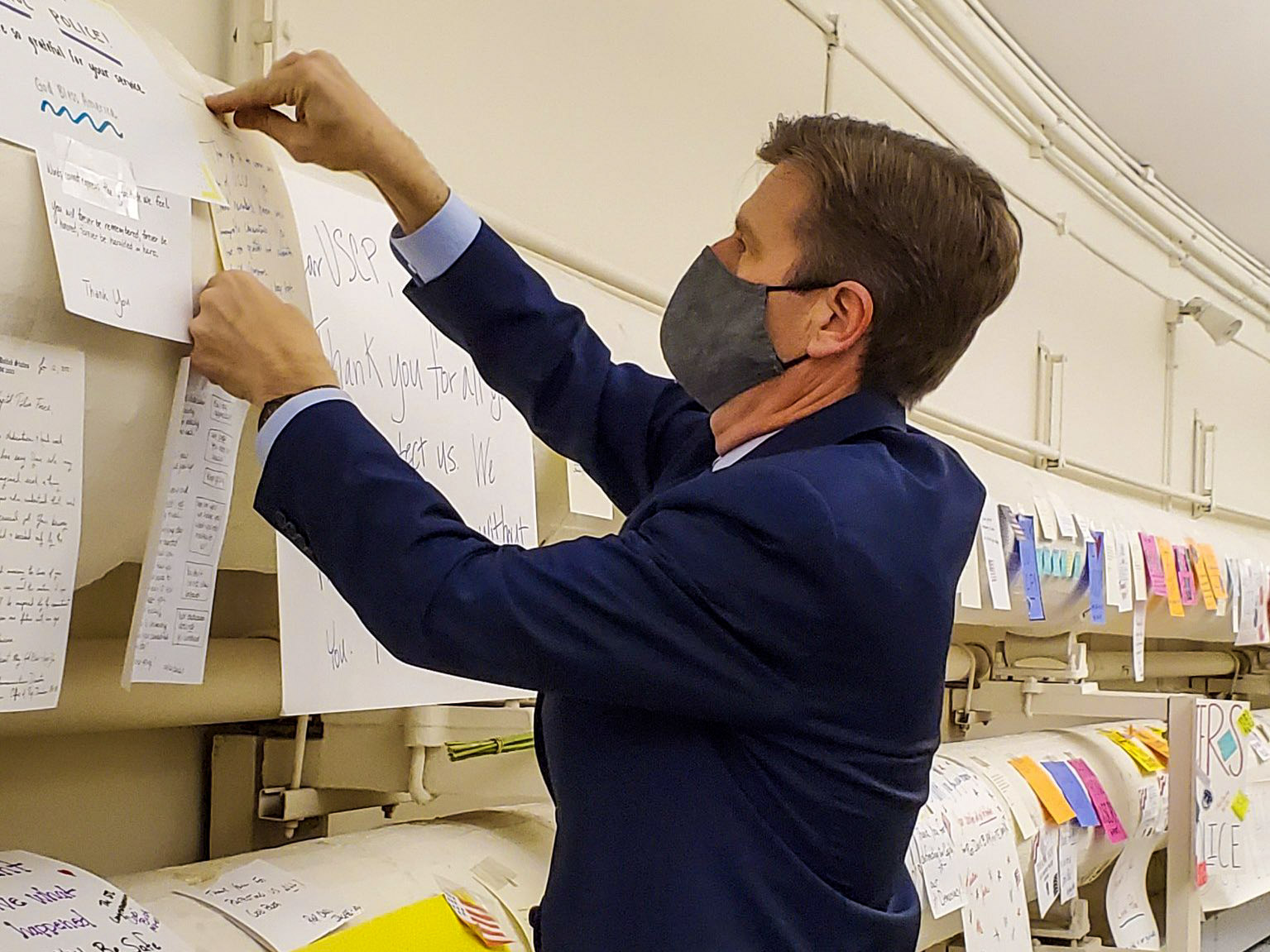
Photo: @RepGregStanton
The following is the text of a February 4, 2021, letter from Rep. Greg Stanton (D-Arizona) to Jeff Zients, COVID-19 Coordinator at the White House.
Mr. Jeff Zients
COVID-19 Coordinator
The White House
1600 Pennsylvania Avenue, NW Washington, DC 20500
Dear Mr. Zients:
I am deeply grateful that, for the first time since the COVID-19 virus began to ravage our nation, there is finally a coordinated effort at the federal level to tackle and eradicate this virus.
Few places in the world have fared worse than Arizona during this crisis.
Throughout this pandemic, Arizona led most of the southwest, the nation and the world in cases, deaths, hospitalizations and intensive-care unit hospitalizations per capita. The past few months have been especially heartbreaking. For weeks throughout December and January, Arizona again led the nation and the world in per capita case growth, and now sits at the fourth highest rate in the nation. We’ve lost nearly 14,000 Arizonans from COVID-19—nearly 7,000 in December and January alone.
Because some of the most common-sense policies to prevent rapid spread of the virus have been rejected in Arizona, the best hope my constituents have is the rapid deployment of vaccines to reach herd immunity.
Arizona faces unique circumstances that require my state to have a larger number of vaccines to get there. Vaccine allocation by the federal government has been based on Census data, but in recent months the state has welcomed—as we traditionally do—a large influx of individuals eligible for the vaccine. This includes essential seasonal agriculture workers, as well as older, higher-risk, out-of-state residents who relocate to Arizona during the winter.
To make sure these individuals are not left behind, state public health officials have justly adopted the protocol to not require proof of residency at vaccination sites. In turn, Arizona’s population-based allocation is significantly lower than what is needed to reach the desired vaccination numbers for the Phase 1A, Priority 1B, and 1B groups.
To meet the additional demand these circumstances present, I respectively urge the Administration approve an immediate allocation of 300,000 vaccine doses, as well as 300,000 additional doses per week to the State of Arizona.
On January 15, the State of Arizona along with the Arizona Department of Health Services (ADHS) submitted a request [Resource Request No. 2616-470467] to the Federal Emergency Management Agency asking for 300,000 vaccines per week, but that request was denied on January 17 because—as you know—it was made to the wrong agency.
I have been told the State of Arizona has since corrected the error and re-submitted the request through VTrckS, the web-based system in charge of U.S. supply chain management for vaccines as a part of Operation Warp Speed, and that it remains pending.
My state is hurting. Arizonans have been forced to wait for hours online or by phone to book vaccination appointments. Just yesterday, 21,000 appointment slots were filled within 39 minutes of becoming available. An emergency infusion of 300,000 vaccines is essential to eliminate the current shortfalls we have to reach ADHS’s phased rollout timeline for the current vaccine phases—as well as to ensure additional demographics of Arizonans receive the vaccine in a timely manner. And as the State of Arizona continues to create mass vaccination sites to capitalize on the current number of vaccines available, the addition of 300,000 vaccines per week will help allow for an equitable distribution of vaccines to reach community health centers and pharmacies that are eager to begin assisting in vaccinating those in rural and underserved communities.
Thank you for your leadership during this terrible crisis and for your prompt attention and response to this request. I look forward to working together.
Sincerely,
Greg Stanton
Member of Congress
HHS Small Ambulatory Program Awards $55 Million to 15 Tribes and Tribal Organizations (Indian Health Service)
Indian Health Service Announces New Deputy Director for Quality Health Care and Enterprise Risk Management (Indian Health Service)
Federal Emergency Management Agency (FEMA)
White House Office of Management and Budget (Joe Biden Administration)
Tuba City Regional Health Care Corporation (Arizona, Navajo Nation)
Oklahoma City Indian Clinic (OKCIC)
Indian Health Service (Department of Health and Human Services)
Navajo Nation Town Hall (Arizona, New Mexico, Utah)
Navajo Nation (Arizona, New Mexico, Utah)
Tribal organizations statement on advance appropriations for Indian Health Service
Indian Health Service Statement on Advance Appropriations (Department of Health and Human Services)
Indian Health Service (Department of Health and Human Services)
Indian Health Service (Department of Health and Human Services)
Navajo Nation (Arizona, New Mexico, Utah)
